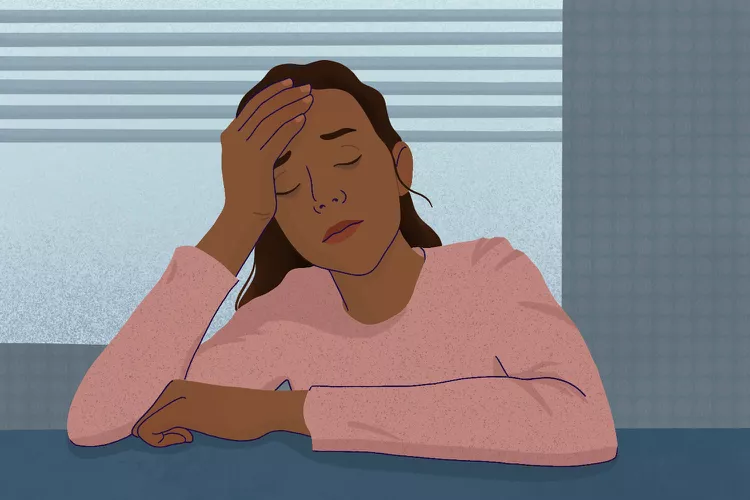10 Effective Home Remedies to Clear Chest Mucus

Chest mucus, also known as phlegm, is produced by the body to trap irritants and protect the respiratory system. However, when it builds up excessively, especially during illness, it can lead to discomfort and persistent coughing. While the body often clears mucus on its own, home remedies may help speed up the process and relieve symptoms.
Here are 10 natural and easy ways to manage chest congestion at home.
1. Add Honey to Warm Drinks
Mixing honey with a warm beverage like tea can help ease chest congestion. Honey not only has soothing and antimicrobial properties, but it may also help calm a cough. When combined with warm fluids, it can support hydration and help loosen thick mucus.
⚠️ Note: Honey should not be given to children under 1 year of age due to the risk of infant botulism.
2. Avoid Smoke and Air Pollutants
Cigarette smoke and other air irritants like chemical fumes and pollution can worsen mucus buildup. Smoke damages the cilia—the tiny hair-like structures in your lungs responsible for clearing mucus. Avoid smoking and try to limit exposure to polluted air for better respiratory health.
3. Change Your Body Position
Staying upright during the day and propping yourself up while sleeping may help drain mucus and improve breathing. Lying flat can make chest congestion worse, while an elevated position supports the natural drainage of mucus from the lungs.
4. Use Herbal Remedies
Certain herbs are traditionally used to help break up mucus and relieve respiratory discomfort. Look for herbal supplements or teas containing:
-
Eucalyptus
-
Thyme
-
Ivy leaf extract
-
Pelargonium
-
Primrose
As with any natural remedy, talk to your healthcare provider before use, especially if you have underlying health conditions.
5. Manage Your Cough
A productive cough (one that brings up mucus) helps remove phlegm from the chest. Don’t suppress your cough too much—some coughing is beneficial. Controlled coughing techniques can help move mucus more efficiently through the airways.
6. Eat Warm, Nutritious Soup
Soups like chicken broth offer hydration and warmth, which may help thin mucus. The steam from the soup can also ease nasal and chest congestion. If you don’t eat meat, a warm vegetable broth can provide similar relief.
7. Drink Plenty of Warm Fluids
Drinking hot water, herbal teas, or broths can help thin chest mucus and soothe a sore throat. Staying well hydrated makes mucus less sticky and easier to expel. Sipping hot beverages also allows you to inhale steam, which can open up your airways.
8. Take a Hot Shower or Inhale Steam
Steam is a simple and effective way to ease congestion. Whether from a hot shower or by breathing in steam from a bowl of hot water, moist heat can loosen mucus, reduce tightness in the chest, and improve airflow.
???? Tip: Place a towel over your head while inhaling steam to trap the heat and maximize effectiveness.
9. Try an Over-the-Counter Expectorant
Expectorants like guaifenesin (found in Mucinex or Robitussin) may help break down and loosen mucus, making it easier to cough up. These medications don't cure infections but can reduce symptoms associated with chest congestion.
Always follow dosage instructions and talk to your pharmacist if you're taking other medications.
10. Use a Humidifier
Adding moisture to dry indoor air with a humidifier can help loosen chest mucus and soothe irritated airways. However, it’s important to keep your humidifier clean to avoid mold growth, which can worsen respiratory issues.
When to See a Healthcare Provider
Most cases of chest congestion improve with home care. However, seek medical attention if you experience:
-
A cough lasting more than three weeks
-
High fever or chills
-
Bloody mucus
-
Severe shortness of breath
-
Worsening symptoms despite home remedies
Persistent chest mucus can be a sign of underlying conditions, such as:
-
Asthma
-
Chronic obstructive pulmonary disease (COPD)
-
Bronchiectasis
-
Cystic fibrosis
Quick Summary
To reduce chest mucus, try home remedies like drinking warm fluids, using steam, eating soup, or taking expectorants. Lifestyle adjustments—like avoiding smoke and staying hydrated—can also help. If symptoms last more than a few weeks or worsen, consult a healthcare provider.















.png)



.png)







.webp)
.webp)


.png)






